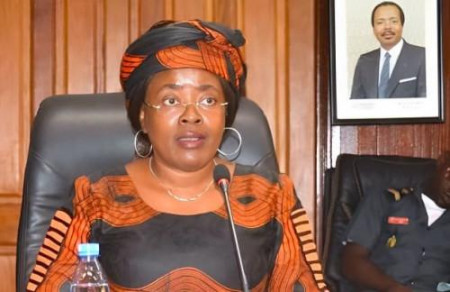(Business in Cameroon) – Cameroon officially launched its National Artificial Intelligence Strategy, known as SNIA, on July 7 in Yaoundé. Unveiled by Minister of Posts and Telecommunications Minette Libom Li Likeng, the strategy aims to position Cameroon as a leading hub for artificial intelligence in Africa by developing sovereign, inclusive, and sustainable solutions grounded in African values.
To reach this goal, SNIA plans to train 60,000 AI professionals by 2040, with women making up 40 percent of that workforce. The strategy also targets the creation of 12,000 direct jobs and aims to contribute between 0.8 and 1.2 percent to the country’s GDP. Among its objectives are the development of 12 sovereign, impact-driven AI solutions and multilingual models that incorporate national languages. These models, referred to as multilingual and inclusive AI, will include GPT Cameroon, a local language processing model.
SNIA is built on seven key pillars. One focuses on regional and international cooperation, promoting the export of “Made in Cameroon” AI products and establishing a Central African AI network. Another pillar supports innovation in critical sectors such as agriculture, health, education, and justice through AI-based solutions. The strategy also emphasizes human capital development and research, with plans to train 4,000 people annually and establish five national AI centers of excellence.
Additional pillars address sovereign technological infrastructure, including solar-powered edge computing systems deployed across all regions. The strategy also calls for the development of data infrastructure, such as a government data lake, an Open Data policy, and the digitization of public services.
The entire strategy will operate within a digital governance framework overseen by a presidential AI council and guided by a national regulatory framework.
Minister Libom Li Likeng said the strategy reflects Cameroon’s decision to take control of its technological future, strengthen its human and cultural resources, and establish itself as a leader in responsible innovation in Africa.
Ludovic Amara



































